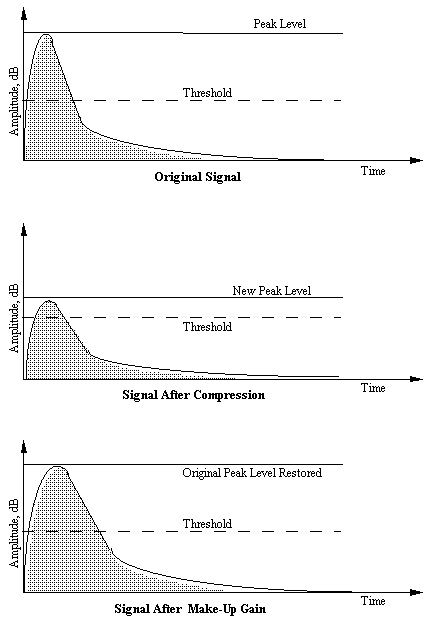(1) The process of reducing the dynamic range of an audio signal by reducing the peaks so as to be able to boost the low levels. For every dB of compression applied, the S/N ratio is worsened by 1dB, assuming that the make-up gain is set so that the maximum levels of the compressed and uncompressed signals are the same, as the quieter parts of the original signal, plus any noise contained in these regions, will be raised in level.
(2) A dynamic-range problem in loudspeakers caused by nonlinearity under conditions of high input power levels. At very high levels, the acoustic output increases more slowly or ceases to increase altogether as the input power increases, producing nonlinear distortion, i.e., a frequency response curve very different for very high levels.
(3) Data compression used on digital audio files is a process ADPCM, MACE, for example.
(4) The opposite of rarefaction whereby a quantity of data is reduced in order to occupy less storage space. See ATRAC.
